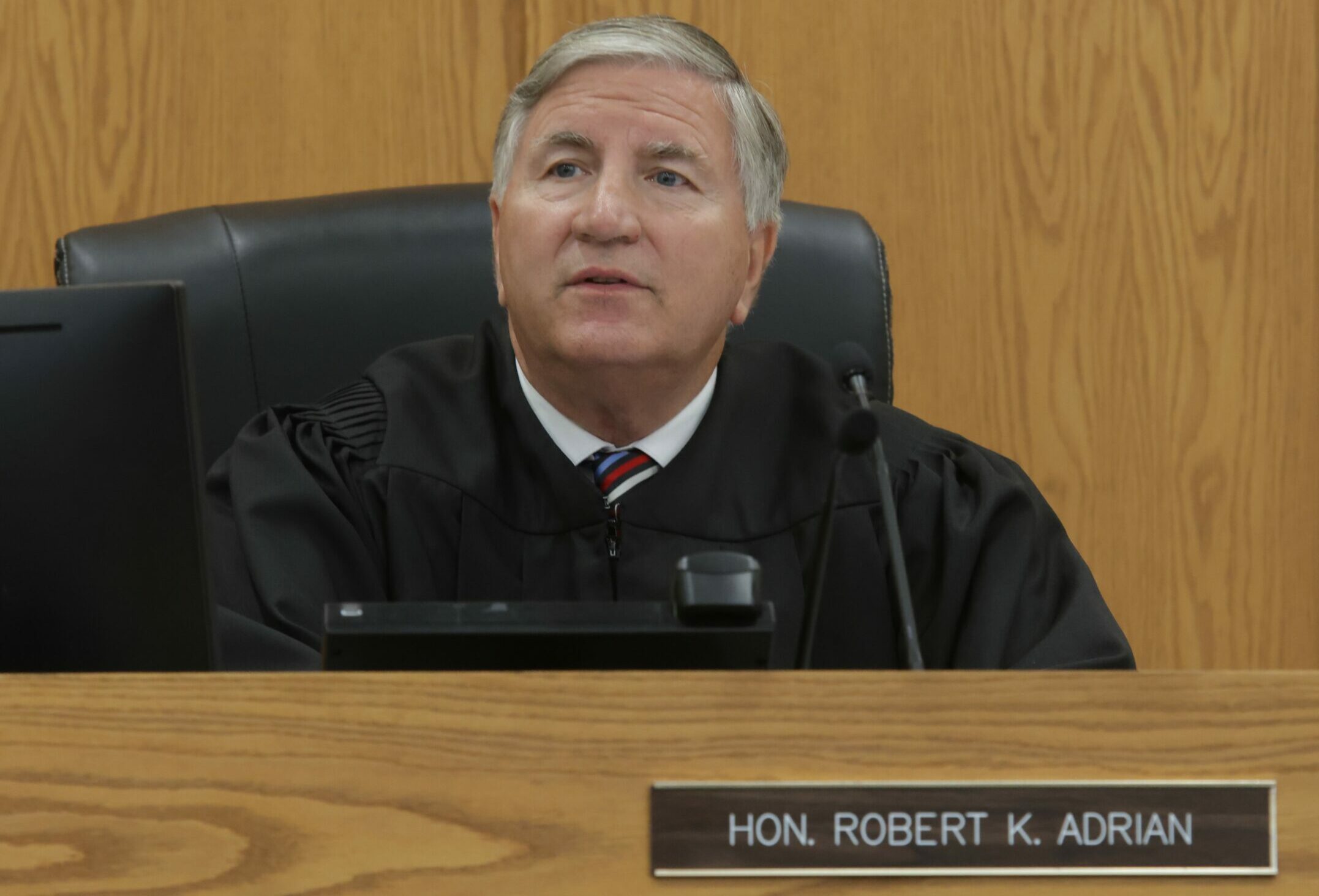A judge’s ethical imperative: Follow the law or face the Judicial Inquiry Board

(This article appeared April 17 in the Chicago Daily Law Bulletin. It is reprinted here with permission.)
“The law that applies to this case is stated in these instructions, and it is your duty to follow all of them.”
So states Illinois Pattern jury instruction 1.01(2), which the judge reads to the jurors in every criminal case before the jury begins its deliberations. If we expect jurors to follow the law, we surely must expect judges to lead by example and do the same thing.
Now former Illinois Eighth Circuit Judge Robert Adrian did not do so. In the case of the People of the State of Illinois v. Drew Clinton, a 16-year-old girl at a graduation party became intoxicated, fell asleep and was awakened when her breathing was impaired by a couch cushion being pressed against her face and 18-year-old Clinton sexually assaulting her.
After a bench trial, Adrian found Clinton guilty of criminal sexual assault — a felony requiring a mandatory minimum prison sentence of four years — and immediately ordered him taken into custody. Months later, after a hearing on post-trial motions, Adrian acknowledged the law requires the imposition of a mandatory prison sentence upon conviction. However, because he felt that punishment was too severe, he reversed his finding of guilt.
By so doing, he ignored the Illinois sentencing statute mandating imprisonment and replaced it with his own sense of what the law should be.
In open court he declared, “This court could find that the sentencing statute for this offense is unconstitutional as applied to this defendant. But that is not going to solve the problem because, if the Court does that, this Court will be reversed by the appellate court, and Mr. Clinton will end up in the Department of Corrections.”
Further, he stated, “There is no way for what happened in this case that this teenager should go to the Department of Corrections. I will not do that.” He added, “Mr. Clinton has already served almost five months in the county jail, 148 days. For what happened in this case, that is plenty of punishment. There would be a just sentence. The Court can’t do that. But what the Court can do, because this was a bench trial, the Court will find that the People failed to prove their case…”
He then entered a judgment of acquittal and released the defendant.
The Illinois judicial inquiry Board filed an ethics complaint against Adrian alleging, among other things, that he improperly reversed his finding of guilt to avoid imposing a prison term and then falsely testified before the board about his reasons for the reversal.
The Illinois Courts Commission conducted a hearing on the complaint during which Adrian testified. After the hearing, the commission issued a scathing 33-page decision finding that Adrian’s testimony was “
“untruthful and his actions in the Clinton case were unethical, while circumventing the law, he lied under oath on multiple occasions, and he has failed to acknowledge his misconduct.”
The commission concluded that the “only appropriate sanction is to remove respondent from the office of circuit court judge, effective immediately.”
For his part, Adrian reportedly responded to the Courts Commission’s decision by blaming his removal on a “two-tiered justice system for conservative Republicans in Illinois” and stating that he was being targeted because he’s “a known Christian conservative.” He further claimed, “It’s totally a miscarriage of justice” and “it’s totally a political hit job.” Perhaps most egregiously, he said, “I guess maybe I should have sat there in court and called her (the victim) a liar.”
The truth is this: Adrian’s tale is one of an unrepentant ex-judge who repeatedly lied under oath to cover up the true motive for his misconduct — he didn’t like the result that the law commanded. He decided not to follow the law. He failed to do what he has instructed jurors to do countless times: namely his duty, to follow the law.
Adrian is not the victim in the Clinton case, as he adamantly claims. The true and only victim here is the 16-year-old girl who was sexually assaulted and then denied justice. Adrian subverted the law and supplanted it with his own sense of justice. That is why he has been removed from office, not because of some so-called “political hit job.”
The overwhelming majority of Illinois judges work hard to dutifully deliver justice. But every so often a rogue judge thumbs his nose at the law to indulge his own sense of fairness, thereby tarnishing the scales of justice and bringing the judiciary into disrepute.
The People, through their representatives, establish the penalties for a crime. Judges cannot arbitrarily reverse a judgement simply because they disagree with such penalties based upon their own sense of what the law should be. It is wrong for a judge to do so. Fortunately, Illinois has a system in place to hold such wrongdoers accountable.
It was the Illinois Courts Commission, not Adrian, that delivered justice when it unanimously ordered his removal from judicial office — effective immediately.
David P. Sterba is a retired Illinois Appellate Court justice. He is currently the chair of the Illinois judicial Inquiry Board and a partner at the law firm of Walsh, Fewkes & Sterba, P.C.
Miss Clipping Out Stories to Save for Later?
Click the Purchase Story button below to order a print of this story. We will print it for you on matte photo paper to keep forever.

